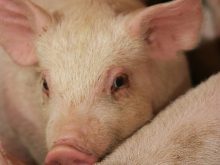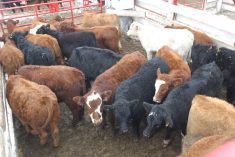COVID-19 outbreaks in a number of Hutterite colonies should be a wake-up call to all of us in rural areas.
The virus is real, it’s not going away and we should all take proper precautions.
Until recently, the pandemic seemed a distant problem. Cases were low in most rural regions. Yes, there was a problem in the far north of Saskatchewan. Yes, there was a concerning number of cases in big cities like Calgary. Yes, Ontario and Quebec were struggling, particularly in long-term care homes. And certainly the pandemic was exacting a huge toll south of the border. But nothing to worry about in Nowhereville, Sask.
Read Also

Critical growing season is ahead for soybeans
What the weather turns out to be in the United States is going to have a significant impact on Canadian producers’ prices
Now the reality is much closer to home. Because the people on colonies eat, work and worship together, some have a large percentage of their population infected.
It’s important to note that most colonies do not have COVID-19 and it’s unfortunate that every Hutterite is being stigmatized.
Reports indicate that most colonies have taken the threat seriously and have co-operated with health officials. Some, however, have been obstinate, not unlike what you see in the general population outside of colonies.
Health officials and the government of Saskatchewan have been criticized for releasing information pointing to the specific colonies with outbreaks. There should be no double standards. If rural community ABC is not going to be singled out for its positive cases, Hutterite colony ABC should not be either.
There’s an argument that the public should know where cases are occurring and there’s also an argument that privacy still matters. In the case of the outbreaks on some colonies and the resulting jump in positive cases for regions that had previously reported very few cases, the situation wasn’t going to remain secret anyway.
People talk, and even without government disclosure the problem within some colonies was going to end up as public knowledge.
Unfortunately, every Hutterite is now being stigmatized. Every time a Hutterite is in a grocery store or farm equipment dealership, people will wonder.
For sake of argument, let’s say rural community ABC has a significant outbreak. People from that community and surrounding area don’t have a sign on their backs identifying where they come from. In a similar way, most won’t know what colony a Hutterite is from, but they’ll know the person is a Hutterite and in their mind they’ll wonder about COVID-19.
It isn’t fair, but the only solution is to get COVID under control on the colonies that have a problem. With time and diligence, this can be accomplished. In fact, it will be much easier than dealing with the overall pandemic.
Gradually opening up the economy and sending kids back to school in a month will make it more difficult to keep case numbers low. On top of that, the general population is becoming desensitized to the threat and we’re letting our guard down.
Ahead of spring seeding, many farms came up with specific COVID plans in an attempt to keep everyone safe. As harvest approaches, is the same rigour in place?
We know a bit more now than we did in the spring regarding the best practices for preventing the spread. The biggest change is the recognition of the important role masks can play.
When positive cases were minuscule across large geographic regions, it was easy to get complacent. The threat is much more real now and it isn’t going away any time soon.

















